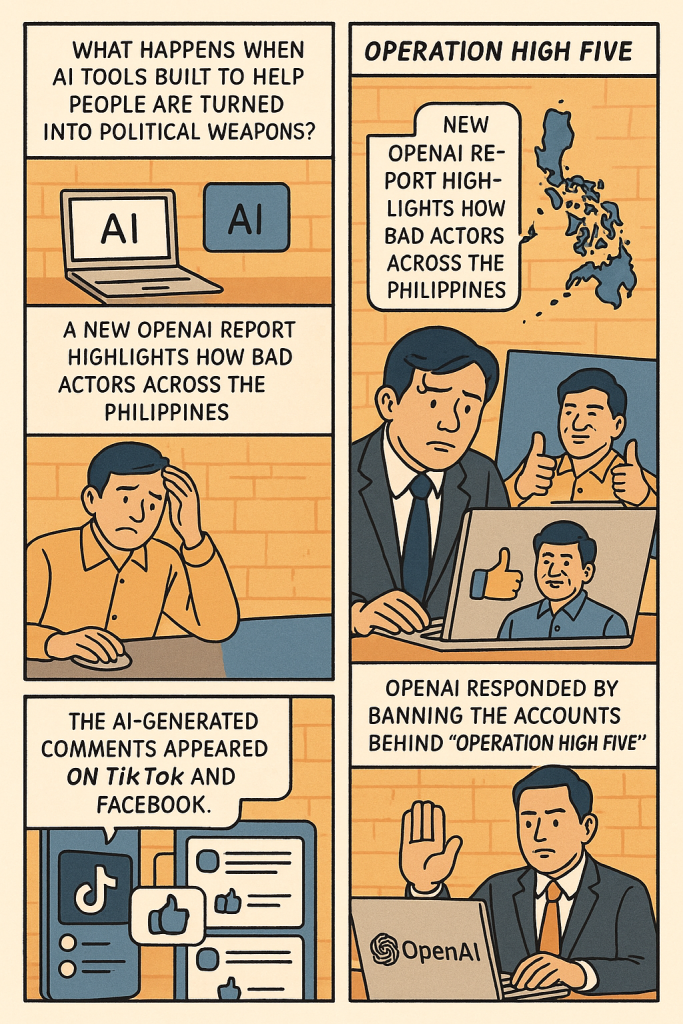OpenAI cracks down on AI-Generated Propaganda in the Philippines
What happens when AI tools built to help people are turned into political weapons? According to a new OpenAI report, it’s already happening — and not just in far-off countries. One of the clearest examples of AI-powered manipulation is unfolding right here in the Philippines. The report highlights how bad actors across the globe are misusing AI for everything from cyberattacks to political influence. And yes, the Philippines is very much part of that picture.
One case that hits especially close to home is “Operation High Five.” This influence operation was traced to a local PR firm, Comm\&Sense Inc., which allegedly used ChatGPT to churn out thousands of political comments in support of President Bongbong Marcos Jr. These comments, written in a mix of English and Taglish, were short, often just a few words, and aimed at boosting Marcos’ image while throwing shade at Vice President Sara Duterte. (Some even referred to her as “Princess Fiona.”)
The AI-generated messages appeared under TikTok videos shared across five coordinated channels, all promoting pro-Marcos content. On Facebook, the same approach played out in the comment sections of posts from mainstream news outlets like ABS-CBN. The accounts posting these comments didn’t share original content or interact like normal users. Most were blank profiles with no followers or friends, created to flood the comment sections and simulate popular support.
But here’s the twist. It didn’t work. Despite the volume, OpenAI found that these comments got almost no traction. There were very few likes, replies, or shares. So even though the campaign was active on multiple platforms, it failed to gain real-world engagement. OpenAI rated the effort as a Category 2 on its influence scale, which means it had reach across platforms but limited actual impact.
As part of its response, OpenAI banned the ChatGPT accounts involved in the campaign. After detecting the misuse, the company also observed that the actors behind it attempted to return to the platform multiple times using new accounts.
The Philippines was also briefly mentioned in the report’s summary as a likely source of comment spam in other cases. However, Operation High Five remains the most detailed example involving Filipino actors. It serves as a reminder that AI can be used to manipulate public sentiment, even if the attempt doesn’t succeed.
Looking at the bigger picture, this is not just a Philippine issue. OpenAI documented similar operations originating from China, Russia, Iran, and Cambodia. These range from complex cyber campaigns to scam networks and fake online personas. The upside is that these activities leave digital traces. Those traces are helping platforms like OpenAI identify and shut down malicious accounts more quickly.
The threat landscape is evolving fast. The Philippines is not on the sidelines anymore. We’re already part of the story.


